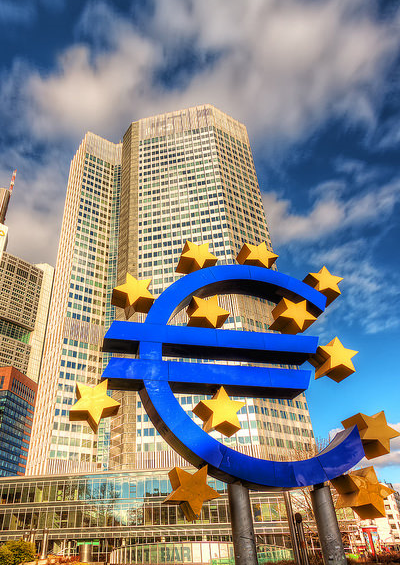Greece: Open for Business Again?
Don’t be fooled: Nothing has been resolved.
July 21, 2015

Greek banks are open for business once again. But not really. For the last three weeks, Greek citizens have been allowed to take out €60 ($65) a day. Now, they can take out €420 a week, but capital controls remain in place. At least Greeks can now access their bank deposit boxes and carry out normal over-the-counter transactions. (See TG’s recent coverage of Greece here)
The European Central Bank has provided emergency assistance to Athens to allow bank doors to re-open and enable Greece to operate normally for the rest of the vital tourist season.
But nothing has been resolved. The contagion from Greece is spreading northwards. In Britain, the advocates of a No vote in the forthcoming referendum on UK membership of the EU are filling news pages with articles citing Greece.
They see it as proof that the Euro is a disaster and the EU is incapable of sorting out a backyard problem. There is also the expected venomous criticism of Germany’s handling of the crisis.
The after-effects
France’s President François Hollande is positioning himself as the man who saved Greece from Europe as the Berlin barbarians were ready to storm the Parthenon.
Very self-servingly, his government now talks about Europe being more than just about rules. No wonder: France has not balanced its budget since the mid-1970s.
What about Italy, whose Prime Minister also issued words of resoluteness defending Greece. No wonder — in Italy, too, the debt-to-GDP ratio, inherited by its young left-of-center leader, Matteo Renzi, is not far short of Greek levels.
What about Brussels itself? The EU is asking more of Greece than it demands of itself. Supermarkets are told to open on Sundays — which does not happen in Germany. And pensions are expected to reform in Greece in a way that has not been achieved in most other EU states.
Evidently, there is not much of an “equal rights” (and obligations) movement in place, even though the professions (pharmacies, notaries, etc.) are overregulated (read: protected) in countries far beyond Greece.
Greece, handcuffed to its Brussels warders, is a long way from being fully in charge of its own destiny.
What about the United States? It has brought geopolitics into play by telling the Europeans via the IMF that Greek debt was unsustainable and needed to be written down. It advocates for the same approach applied to German debt in the 1950s — or, more recently, Poland and Finland after the fall of the Soviet Union in 1990.
Trouble is, those debt reductions occurred outside the eurozone (that is, before there ever was one). Germany, of course, breached eurozone rules when it wanted to in 2004 and the UK had no problems finding €10 billion to bail out Ireland in 2010.
Thus, the idea that the EU cannot bend its rules is wrong. No other eurozone country benefits from the Greek disaster. If Grexit happens, any weaker eurozone economy will be next in line and Brexit in Britain will become inevitable.
Greece, always a weak link
Greek debt forgiveness is now on the horizon in the shape of pushing back repayment dates, but only if Tsipras gets reforms through Parliament.
America has left it to the EU to sort this out, but as with the EU’s failure to stop the Balkan wars and Srebrenicas in the 1990s, the lack of leadership in today’s EU is its defining feature.
There is as yet no Obama doctrine echoing the 1947 Truman doctrine when the United States asserted its duty to save Greece for the EuroAtlantic community.
Then as now, Greece remains the weakest link on the southern flank in the NATO-EU alliance. The troubling question is this: Was giving special dispensation to Greece back in the late 1940s a crucial reason behind the country never finding its own proper internal balance?
Washington turned a blind eye to the Colonels’ coup in 1967 and Europe, principally Paris and Bonn, turned a blind eye to the corrupt clientelist economic policy that was sustained in Greece by both the socialists in Pasok and the conservatives in New Democracy since Greece entered the European Community in 1981.
Greece thus has never really embraced the opportunities and responsibilities that are involved in any market economy.
Greece’s problems are many – and they reach back much further than just the launch date of the eurozone.
Takeaways
The contagion from Greece is spreading northwards in Britain.
The advocates of a No vote in Britain see Greece as proof that the Euro is a disaster.
The EU is asking more of Greece than it demands of itself.
Greece remains the weakest link on the southern flank in the NATO-EU alliance.
Read previous
Global Economy
Greece: Next Stop Russia?
July 21, 2015
